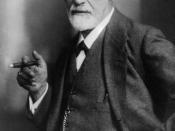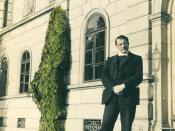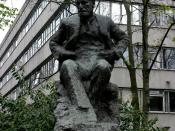It is difficult to believe that anyone has not wondered why we dream, and dreams are one of the most unusual elements of human experience. It partly based on our experiences from the present, partly from the past and things beyond actual human experience at all. Dreams seem to giving answers to our questions, we cannot quite remember after all.
Given the simultaneous meaningfulness and fragility of dreams, it is not surprising that the greatest psychoanalysts should have turned their minds to trying to understand how people interpret dreams and how the dreams affect our waking actions. And, given the essential ambiguity of dreams, it is not surprising that Sigmund Freud and Carl Jung differed dramatically in their readings of what the dreams mean.
This paper examines the theories that Freud and Jung developed to explain what it is that our dreams mean to us when we are awake, demonstrating that great scientists, like the rest of us, believing that dreams must mean something, must be useful for something and telling us something.
Freud's Research on Dreams
In his Interpretation of Dreams Sigmund Freud's wrote that "Dreams are often most profound when they seem the most crazy" - an opinion that he came to over time as he began to explore more and more deeply the nature of dreams and how they affect us when we are awake. It was during the period from 1895 to 1900 - after his initial work into the nature of the subconscious - that Freud began to do his most important work on the nature of dreaming and began to develop a number of the ideas about the unconscious that he would later incorporate into his own theory and work in psychoanalysis.
It was soon after he had completed the work on the...


